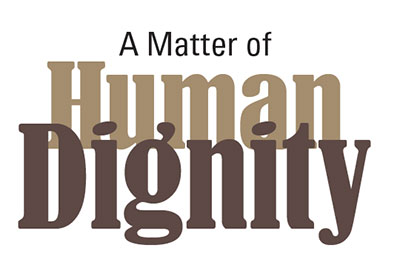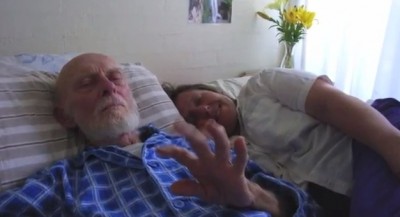Be sure to check them out today!
ACLU says faith-based hospitals jeopardize reproductive, end-of-life care
By Aaron Corvin
Hospitals are supposed to be places of healing, but Washington’s hospitals are becoming places of conflict between religion and government over health care services.
 The state’s American Civil Liberties Union is questioning whether health care regulatory agencies and public hospital districts should grant approval to faith-based hospitals — primarily Catholic — that don’t offer reproductive and end-of-life services that are widely available at secular hospitals. In some rural areas of the state, the ACLU says, hospital consolidations and mergers could leave communities only with Catholic hospitals which refuse, based on Catholic religious beliefs, to provide such services.
The state’s American Civil Liberties Union is questioning whether health care regulatory agencies and public hospital districts should grant approval to faith-based hospitals — primarily Catholic — that don’t offer reproductive and end-of-life services that are widely available at secular hospitals. In some rural areas of the state, the ACLU says, hospital consolidations and mergers could leave communities only with Catholic hospitals which refuse, based on Catholic religious beliefs, to provide such services.
“We’re very troubled by what’s going on,” said Sarah Dunne, legal director for the Seattle-based American Civil Liberties Union of Washington Foundation. The ACLU is pressing its case on several fronts, including the possibility of legal action. The group also is challenging proposed partnerships between Vancouver-based PeaceHealth and other health care providers.
PeaceHealth, a Catholic-sponsored health system, is pushing back. The nonprofit health care giant — Clark County’s top private employer — says its partnerships with public hospital districts and others are well within legal parameters. And the organization stands by its right to deny certain services based on its religious principles, officials say, as it continues a long history of improving health care in a variety of communities.
“All we have to point to is our record of service,” said Jenny Ulum, a PeaceHealth spokeswoman.
Later this year, the proposal by PeaceHealth and Colorado-based Catholic Health Initiatives to join forces will undergo a public review and decision by state health regulators. The companies are submitting paperwork, and critics say they plan to weigh in.
The controversy arises amid dizzying political and economic changes in health care. Consolidation has become a health care industry norm. And federal health care reform has heightened tension between the Obama administration and Catholic-based health providers over insurance coverage for contraception.
Not all religiously affiliated hospitals operate in the same way or with the same policies. In PeaceHealth’s case, the nonprofit is a church ministry authorized by the archbishops of Portland and Seattle, according to Ulum. “The church’s authority pertains to our Catholic identity,” she said, “which basically has oversight over faith and morals.” However, PeaceHealth also is a nonprofit corporation with its own governing board and bylaws, Ulum said. PeaceHealth owns its property and facilities, she said, and is responsible for business operations and its health care work.
Legal arguments clash
The ACLU cites data showing that several merger proposals this year would decrease secular hospital beds in the state, in some cases handing a monopoly on health care services to religiously affiliated institutions.
As a result, the ACLU in Washington has launched efforts to curb what it sees as an alarming trend. That includes opposing arrangements between PeaceHealth and taxpayer-funded public hospital districts in San Juan and Skagit counties. The group argues the tax dollars should not be used to subsidize health services limited by PeaceHealth’s religious policies.
It’s also urging public hospital officials to renegotiate their relationships with PeaceHealth in light of the nonprofit’s proposed partnership with Catholic Health Initiatives.
The ACLU argues CHI is even more restrictive in its policies than PeaceHealth. Partly because of its larger size and influence, they say, CHI will likely seek to impose its religious doctrines in communities served by PeaceHealth.
But PeaceHealth officials say the nonprofit and CHI already have agreed that neither of their respective patient-care ethical policies will change under their proposed affiliation, which will be structured as an equal partnership. What’s more, they say, their partnership is intended to boost the quality of care they provide and to strengthen their financial footing to serve growing populations.
The situation in San Juan County exemplifies the conflict. Under an arrangement with the San Juan County Public Hospital District No. 1, PeaceHealth built Peace Island Medical Center, which opened last year. The new facility was built for $30 million, with the community covering about a third of the cost using private funds and with PeaceHealth footing the rest of the construction bill. And PeaceHealth runs the hospital under a contract with the district, which uses its property-tax levy to partially subsidize PeaceHealth’s operations.
Ulum, the PeaceHealth spokeswoman, said the hospital district transferred about $1.2 million in annual property-tax revenue it had used to operate its previous clinic to PeaceHealth. Nearly all of those property-tax dollars enable PeaceHealth to cover the costs of providing charity care and of maintaining a 24-hour emergency department, Ulum said. There was no change in the tax rate, she added.
Lenore Bayuk, the San Juan Hospital District’s commission chairwoman, said PeaceHealth’s entry into the community, with modern facilities, was crucial. Previously, the district struggled to cover its costs at the old clinic, Bayuk said. With PeaceHealth, she said, the district is on sounder financial footing. “We have a cancer treatment center which we didn’t have before,” Bayuk added, noting many other improvements.
But critics say the situation isn’t so tidy. Those include Monica Harrington, a former Seattle technology executive who opposes PeaceHealth’s contract with the San Juan County public hospital district. She cited the fact that San Juan County health officials have agreed to review concerns raised by some residents about health care cost and access issues, including at Peace Island Medical Center.
“We effectively traded lower-priced unrestricted health care in an increasingly dilapidated building for much, much higher-priced, religiously restricted care in a beautiful, art-filled facility,” Harrington wrote in an email to The Columbian.
The ACLU acknowledges the improvements made under PeaceHealth’s arrangement with the San Juan Hospital District. But the organization argues the contract between PeaceHealth and the district violates the Washington Constitution and the state’s Reproductive Privacy Act. “As a government entity, the hospital district should not subsidize religious facilities that discriminate against women’s fundamental rights,” Kathleen Taylor, executive director of the ACLU’s operation in Seattle, wrote in a letter to district officials.
PeaceHealth says the ACLU is wrong in its legal interpretation. There’s nothing in the law prohibiting public-private partnerships between hospital districts and private health care providers that maintain religious affiliations, the nonprofit says. The purpose of PeaceHealth is to provide “important health care services, not the advancement of religion,” according to its legal analysis. “To suggest otherwise is inconsistent with more than a century of collaboration in Washington between the state and religiously affiliated charities, health providers and others.”
But the ACLU says its concerns go beyond PeaceHealth’s arrangements with local public hospital districts.
In her letter to the San Juan County Hospital District, Taylor takes umbrage with PeaceHealth’s proposed partnership with CHI, which operates in 17 states and includes 78 hospitals. The venture between PeaceHealth and CHI would combine seven Catholic Health Initiatives hospitals in Washington and Oregon with nine PeaceHealth hospitals in Washington, Oregon and Alaska.
Although PeaceHealth has argued it will maintain its own ethical policies in its relationship with CHI, Taylor wrote in her letter, “the lack of any legally binding document to that effect fails to protect against the possibility” of additional restrictions on access to reproductive and end-of-life services.
In their concern about how PeaceHealth and CHI will interact, the ACLU and other critics also cite Kentucky Democratic Gov. Steve Beshear’s effort last year to block a proposed merger between University of Louisville Hospital and Catholic Health Initiatives. Beshear opposed the merger in part out of concern that the deal would reduce access to reproductive services. But after further negotiations, the deal went through this month and included a provision that U of L Hospital will remain independent of the Catholic health directives followed by CHI.
Closer to home, PeaceHealth says the concern about its potential relationship with CHI is a nonstarter.
In a letter to the San Juan County hospital district, Sister Andrea Nenzel, chair of PeaceHealth’s board, wrote: “(Catholic Health Initiatives) and PeaceHealth have already agreed that our hospitals, including Peace Island Medical Center, will not change their ethical policies regarding patient care that have been in effect for as long as 40 years.”
Diverging from mainstream?
PeaceHealth officials emphasize the nonprofit’s health care mission is spiritual and expansive, serving the poor and caring for those who are unable to pay for services. Its faith foundation means that PeaceHealth also carries a set of ethical policies that govern the medical services it chooses to provide. Those include:
• It does not permit abortion except to save the life of the mother.
• Contraceptive decisions, including tubal ligations and vasectomies, are between the patient and the provider, and are based on medical necessity.
• Emergency contraception is provided to women who are victims of sexual assault. However, PeaceHealth requires a negative pregnancy test before it will dispense emergency contraception.
• RU-486, which induces abortion, is not dispensed at PeaceHealth.
• With respect to end-of-life care, the nonprofit honors advance directives.
• Physician-assisted suicide is prohibited — even in states, including Washington, where it is legal — on PeaceHealth time and in the nonprofit’s facilities or any facility leased from PeaceHealth.
“In the vast majority of cases,” said Ulum, the PeaceHealth spokeswoman, there’s no “dogmatic policy that supersedes” the decision-making that goes on between a doctor and a patient.
Before Vancouver-based Southwest Washington Medical Center became part of PeaceHealth’s system in 2010, the hospital had been secular since the late 1960s, according to Ken Cole, a PeaceHealth spokesman. Still, the secular hospital honored its Catholic heritage, which dates to the hospital’s founding in 1858 by Mother Joseph of the Sacred Heart.
None of the ethical policies that Southwest, as a secular institution, followed in providing medical services changed when the hospital joined the Catholic-sponsored PeaceHealth network, according to Cole. “We were already in alignment with the system,” he said.
Of course, both organizations have made numerous other changes to solidify their affiliation, Cole said, including updating their clinical procedures.
‘Our conscience’
But critics see more gaps, “don’t ask, don’t tell” situations and slippery slopes in the policies of PeaceHealth and other religiously based health care companies than they do comprehensive services. And they cite examples in Puget Sound and across the nation where they believe that religiously based policies have interfered with patient rights and needs, and modern medicine.
“Who wants their doctor worrying about what a bishop thinks in the middle of a medical emergency?” said Harrington, the critic of PeaceHealth’s contract with the San Juan County public hospital district.
Harrington leads the Coalition for Health Care Transparency and Equity — the group arguing against the arrangement in San Juan County. She’s also co-chair of Washington Women for Choice.
Harrington has weighed in on issues of choice and access in a variety of ways, including submitting op-ed columns in the San Juan Islander newspaper. In one column, she wrote that she’s had “dozens of conversations with people who’ve had terrible experiences because of religious doctrine — from the doctor whose career was threatened as she worked to honor the wishes of a dying patient to a woman who found herself feeling abandoned and alone at Swedish (Medical Center in Seattle) with a midterm pregnancy that needed to end for her health and safety. Rarely do people feel comfortable speaking publicly.” Swedish entered into an affiliation with Providence Health & Services last year.
Harrington grew up in a Catholic family but said she has left the Catholic Church. The church’s view of health care “is diverging from mainstream health care,” she said, “and the people who are most at risk are reproductive-age women and people at the end of life.”
When asked whether the ACLU was girding for a lawsuit, Dunne said the group is exploring all of its options. For now, it continues to research the issue, including asking patients and medical providers to take a confidential survey intended to pinpoint cases in which health services have been denied on religious grounds.
For its part, PeaceHealth says it’s focused on its mission to expand services and deliver improved care to the populations it serves. “I don’t think there’s a lot of disagreement over the positive contribution (the) hospital is making,” said Ulum, the PeaceHealth spokeswoman. And PeaceHealth’s policies against providing certain services, Ulum said, are based on “our conscience as an organization.”
Complete Article HERE!
Last week in Grafton: a research story
Caring at end of life is an innovative research project that has a real interest in people who are supporting loved ones who have come home to die. We are interested in what you have to say as a friend, family member, neighbour, work mate, service provider and community member of a dying loved one.
Let’s talk about dying
Lillian Rubin lives and works in San Francisco. She is an internationally known writer and lecturer, who has published twelve books over the last three decades. Last evening her latest essay appeared in Salon. It’s brilliant and a must read. This courageous woman breaks open a discussion we are all literally dying to have. But so much in popular culture avoids and even prohibits this essential death talk. I commend Lillian for breaking this cultural taboo. Perhaps now others in the media will do likewise.
Complete Article HERE!
Assisted suicide measure narrowly defeated; supporters concede defeat
By Carolyn Johnson
A divisive ballot initiative that would allow terminally ill patients to end their lives with medication prescribed by physicians was narrowly defeated.
 The Death with Dignity Campaign conceded this morning, as unofficial results tallied by the Associated Press showed that, with 95 percent of precincts reporting, 51 percent of voters had opposed the measure, compared with 49 percent in favor.
The Death with Dignity Campaign conceded this morning, as unofficial results tallied by the Associated Press showed that, with 95 percent of precincts reporting, 51 percent of voters had opposed the measure, compared with 49 percent in favor.
“For the past year, the people of Massachusetts participated in an open and honest conversation about allowing terminally ill patients the choice to end their suffering,” the campaign said in a statement released at 6:30 a.m. “The Death with Dignity Act offered the terminally ill the right to make that decision for themselves, but regrettably, we fell short. Our grassroots campaign was fueled by thousands of people from across this state, but outspent five to one by groups opposed to individual choice.
“Even in defeat, the voters of Massachusetts have delivered a call to action that will continue and grow until the terminally ill have the right to end their suffering, because today dying people needlessly endure in our Commonwealth and do not have the right to control their most personal medical decision.”
The ballot question has been the subject of a ferocious political battle. After a Boston Globe poll in September showed voters overwhelmingly supported the measure, support steadily eroded in the face of a last-minute effort by a diverse group of opponents, including religious leaders, anti-abortion activists, and conservatives who aired their message in aggressive television advertisements and at church services. The concerted opposition campaign, which also included a major physician’s group, raised more than three times as much money as proponents.
In a statement, Rosanne Bacon Meade, chairperson of the Committee Against Assisted Suicide, said that while some votes remain to be counted, the efforts to stop the measure had been successful. She added that she hoped the result would spark discussions about how to improve medical care at the end of life.
“We believe Question 2 was defeated because the voters came to see this as a flawed approach to end of life care, lacking in the most basic safeguards,” Meade said in the statement. “A broad coalition of medical professionals, religious leaders, elected officials and, voters from across the political spectrum made clear that these flaws were too troubling for a question of such consequence.”
“Tuesday’s vote demonstrates that the people of the Commonwealth recognize that the common good was best served in defeating Question 2,” Cardinal Sean O’Malley said in a statement.
Massachusetts would have followed Oregon and Washington, which have passed similar initiatives to allow terminally ill patients to seek life-ending drugs from physicians. Donations to opposition groups, which raised nearly $2.6 million, came from far-flung Catholic dioceses, fueled in part by fear of a domino effect if the measure were to gain a foothold in Massachusetts.
Proponents of the measure raised about $700,000.
Other efforts to legalize physician-assisted suicide in New England have failed. In 2000, a ballot initiative in Maine lost by a close margin. Legislative efforts to pass a similar bill in Vermont and New Hampshire have been defeated in recent years.
Voters said they formed their opinions about the controversial ballot initiative after careful consideration, informed by personal experiences with family members and by concerns about the safeguards written into the law.
North End resident Paul Santoro, 42, cast a vote against the initiative.
“I’m actually in favor of assisted suicide, but not how this is written,” Santoro said, citing concerns about the proposal’s lack of required psychiatric evaluations and family notification and the lack of tracking for any leftover pills.
Santoro, who works in sales, said he has five children and worries about young people getting access to dangerous, untracked medications.
Alex Coon, 37, voting at the Dante Club in Somerville, said he voted for assisted suicide for a very personal reason.
“My grandmother was Dutch, and she always said, ‘When I get sick, take me home to Holland, because they’ll let me die,’ ” he said.
The Massachusetts ballot measure was modeled after similar legislation passed by voters in Oregon in 1994. If it had passed, it would have allowed terminally ill patients with less than six months to live to request medications to end their lives. Patients would have had to request medication from physicians multiple times verbally and in writing, be deemed competent to make the decision, and administer the lethal dose themselves.
Critics had said the measure was sloppily written and contained insufficient protection for vulnerable patients. Objections ranged from the difficulty of assessing how much time a patient has left to the failure to require a mental health screening by a specialist. Others opposed the initiative for moral reasons, or because it was counter to the fundamental do-no-harm ethos that governs physicians.
The legislation would have required the state Department of Public Health to write rules by March 20, 2013, to require physicians to report when the drug was dispensed, file copies of prescriptions, and help facilitate the collection of other statistical information.
Statistics kept by Oregon and Washington are frequently cited by proponents as evidence that the law is not being abused and poses no large-scale societal threat. Those detailed statistics show that the fatal doses of medication are requested by a small number of patients and used by even fewer.
Oregon’s law was mired in legal challenges for several years, but since 1997 when it was enacted, 935 people have requested prescriptions, and 596 have used them to end their lives. In 2011 in Oregon, most of the 71 people who used the medication were white, well-educated, and suffering from cancer.
In Washington last year, 103 people requested the prescriptions, with 70 using them and 19 dying without taking the drugs. Of those who requested prescriptions and died, nearly half were married, three-quarters had some college education, and the overwhelming majority had cancer.
Complete Article HERE!
My church seeks to deny a compassionate death … a good death … to those crying out for it
A MINISTER of the Church of Scotland has broken ranks with the Kirk and spoken out in support of a new bill to legalise assisted dying – despite longstanding opposition from the Christian community.
inShare
 The Reverend Scott McKenna said the religious arguments put forward by opposing faith groups, including his own church, “do not stand up” and believes voluntary euthanasia can “sit comfortably” within Christian faith.
The Reverend Scott McKenna said the religious arguments put forward by opposing faith groups, including his own church, “do not stand up” and believes voluntary euthanasia can “sit comfortably” within Christian faith.
He delivered a powerful speech at a conference chaired by Independent MSP Margo MacDonald, who has launched a second bid to legalise voluntary euthanasia.
The Kirk and the Catholic Church have come out strongly against the reform. But research suggests more than 80% of the British public is in favour of change.
The event, held at the Royal Society of Edinburgh on World Dignity in Dying Day, also brought together Ludwig Minelli, founder of the Swiss suicide clinic Dignitas, international representatives from the Right to Die movement, and Jane Nicklinson, widow of the late Tony Nicklinson, who this year campaigned for the right to die.
McKenna, Kirk minister at Mayfield Salisbury in Edinburgh, said his views had been shaped by supporting families through the death of a relative suffering from a terminal illness.
“The Church says, ‘You must not kill, ‘You must not take human life’. ‘God has forbidden it’,” he said. “What is wrong with this argument? There is no such commandment.”
“In the Bible, David killed Goliath, David’s armies killed thousands. In the Book of Exodus, in the original language, Hebrew, the sixth commandment is ‘You must not kill unlawfully’. This is a staggering difference. In the Bible there are circumstances in which killing is legally and morally acceptable, such as in battle or executing a death sentence. I am not offering you an obscure interpretation of scripture. It is mainstream: the Church is wrong.”
He said the Church’s other main argument, that life is a gift from God and only God can choose the moment of death, was also “deeply flawed.”
He said: “We are told that we shouldn’t interfere with God’s plan by shortening human life. This is bad theology. It portrays God as brutal and less loving than we are to our pets. When the Church speaks of compassion, it means to ‘stand in someone else’s shoes’ – yet too often the church seem distant, cold and paternalistic. They know best and, based on a flawed theology, seek to deny a compassionate death, a good death, to those crying out for it.”
The minister has previously campaigned in support of gay clergy and same-sex marriage. He delivered a sermon on assisted dying at last Sunday’s service and said the response from the congregation was overwhelmingly positive.
He said: “Almost everyone is speaking from personal experience. They have been at the bedside of a relative. I know people who have gone into a hospice and the family members know they only have a day left. Once they are pumped full of drugs they lasted 14 days. Why is that good?”
McKenna also said his position was supported by some Catholic theologians.
“Anecdotally there are significant Roman Catholic theologians who are in favour but you won’t hear that from the hierarchy. The churches can continue to have their own view but they shouldn’t be allowed to impose it. I hope that compassion will triumph over religious dogma and the decision to die be seen not as suicide or life-defeating but as life-enhancing and an act of immense faith.”
In its consultation response on the issue of the right to die, the Church of Scotland said: “We believe that any legislation which endorses the deliberate ending of a human life undermines us as a society. The Catholic Church has said the legislation would “cross a moral boundary”.
Complete Article HERE!
End-of-life system is needed in Wisconsin
By Charles E. Cady, Joseph Hansen and Steve Hargarten
This is in response to the Oct. 17 Journal Sentinel article “End-of-life medical care initiative prompts worries about abuse.” The current status of advanced planning for end-of-life decisions is a system that is woefully lacking, and where tools exist, they are of limited utility.
 Autonomy is a fundamental bioethical principle: Patients have the right to make decisions affecting their health care, including deciding on the level and type of care they want. The principle of autonomy is no more important than in end-of-life decisions.
Autonomy is a fundamental bioethical principle: Patients have the right to make decisions affecting their health care, including deciding on the level and type of care they want. The principle of autonomy is no more important than in end-of-life decisions.
These decisions should ultimately be made by the patient but clearly benefit from discussions with health care providers, family, religious leaders and others important in a patient’s life. These decisions should reflect the individual’s goals as guided by his or her personal values and beliefs.
The Wisconsin Medical Society’s Honoring Choices Wisconsin is in keeping with the importance of autonomy, and we fully support this. However, Physician’s Orders for Life Sustaining Treatment (POLST) also must be moved forward in Wisconsin.
As emergency medicine physicians, we have found that the current system of communicating end-of-life decisions is lacking. In practice, it is the opportunity for clear communication of a patient’s wishes at the end of life that is most challenging.
Wisconsin’s do-not-resuscitate (DNR) law is very limiting. While it is the only tool mandated to be recognized by paramedics and emergency physicians, its utility is minimal. The order is only active once a patient has lost his or her pulse (in other words, is already clinically dead) and only pertains to the withholding of CPR. It offers no assistance with regard to other care for a dying patient. Wisconsin advanced directives lack precision, are not orders that can be acted upon by a paramedic and can be very confusing in an emergency situation.
The power of attorney for health care (POAH) system is also imprecise. While this system is a very important component of end-of-life planning, it is limited in emergency situations. Following direction from POAHs is not permitted for paramedics. In an emergency situation, the POAH may also have a hard time remembering that decisions are to be based on the patient’s, not the POAH’s, wishes. Logistically, in an emergency, the POAH is often difficulty to contact.
Physician’s Orders for Life Sustaining Treatment are clear and concise orders that can (and should) be acted upon by emergency personnel. They have been successfully implemented legislatively in 15 states. They take the pressure away from a POAH to make decisions in an emergency and alleviate that sense of personal responsibility for death.
They eliminate the vagueness that is commonplace in current advance directives. They also provide for decisions about care before someone actually dies. Most important, they help plan for the last moments of a patient’s life when clarity in planning and comfort are paramount.
Along with our paramedic colleagues, we encounter patients at the end of life on a daily basis. We see that end-of-life planning is limited. When end-of-life wishes are clearly described, it is an honor to provide that care.
However, these situations are the exception rather then the rule. Consequently, our ability to follow a dying patient’s wishes is limited. The result is often prolonged, painful and futile efforts that may not be desired.
In order to avoid these painful situations and to promote discussion of end-of-life planning, we strongly support efforts to successfully implement POLST in Wisconsin.
Complete Article HERE!



